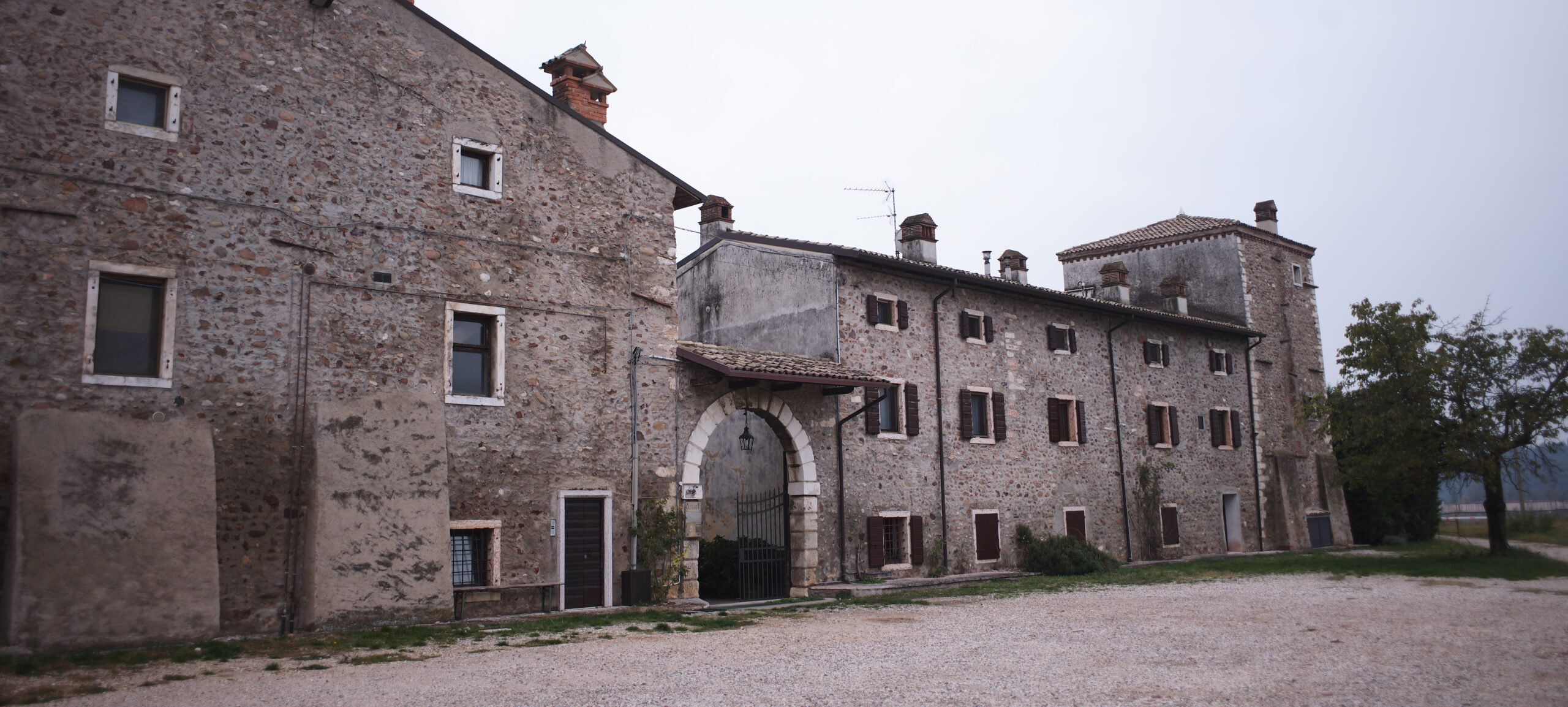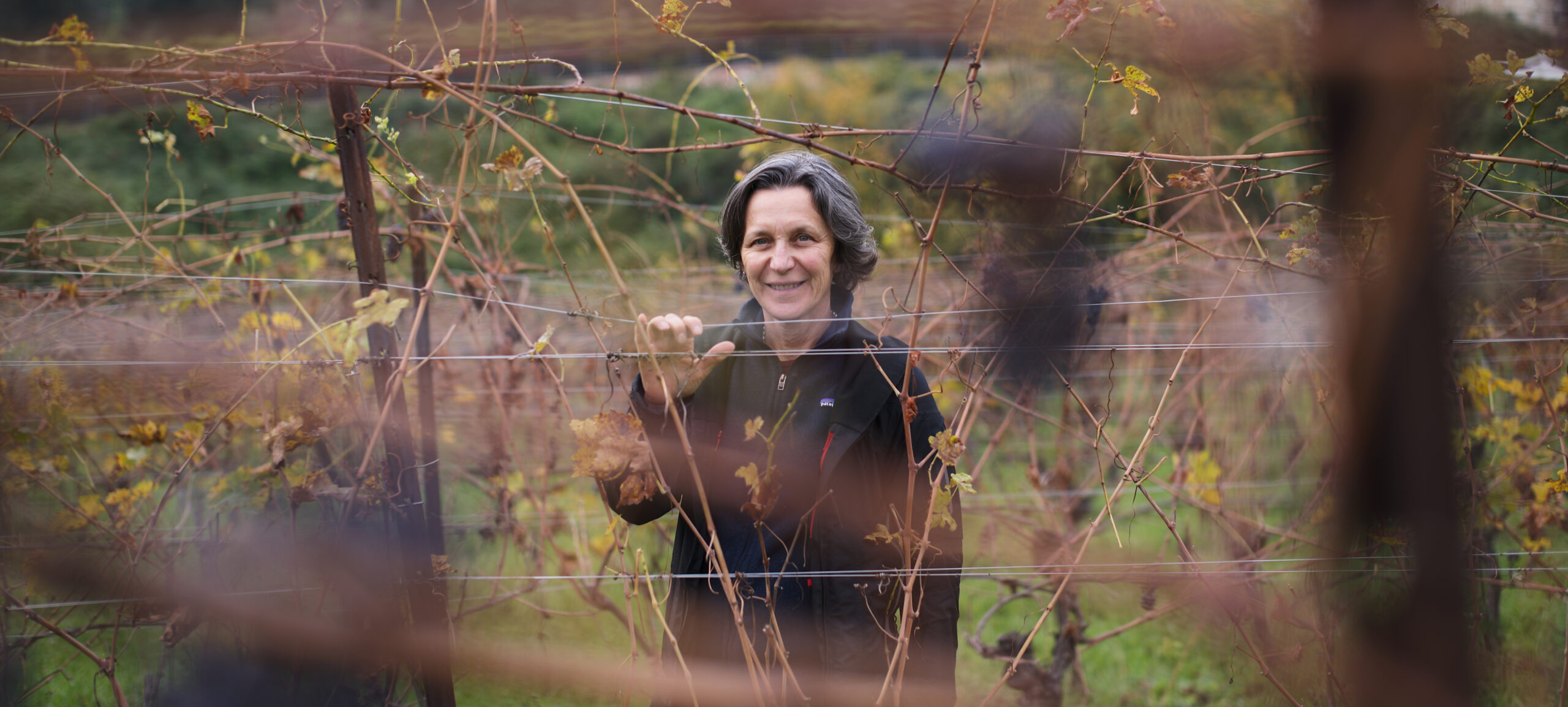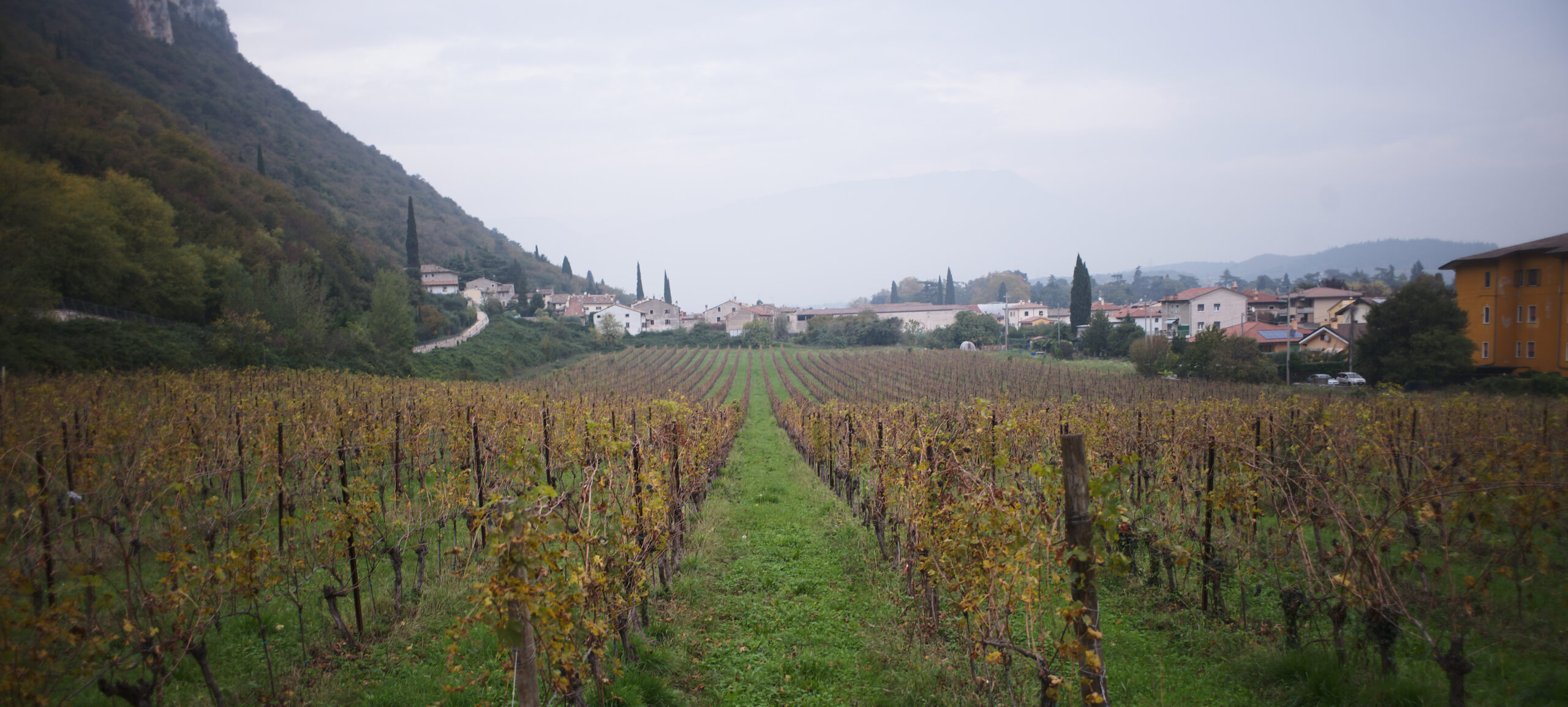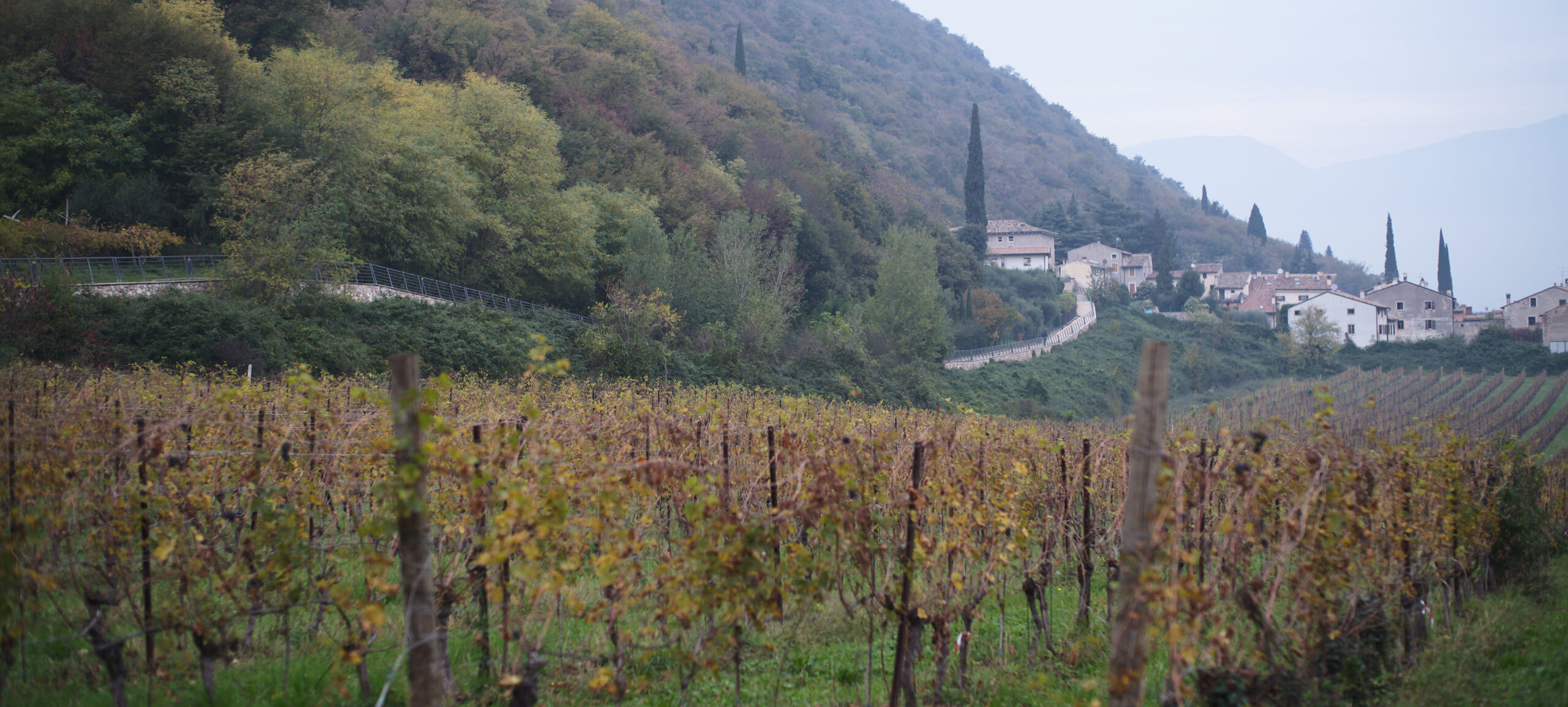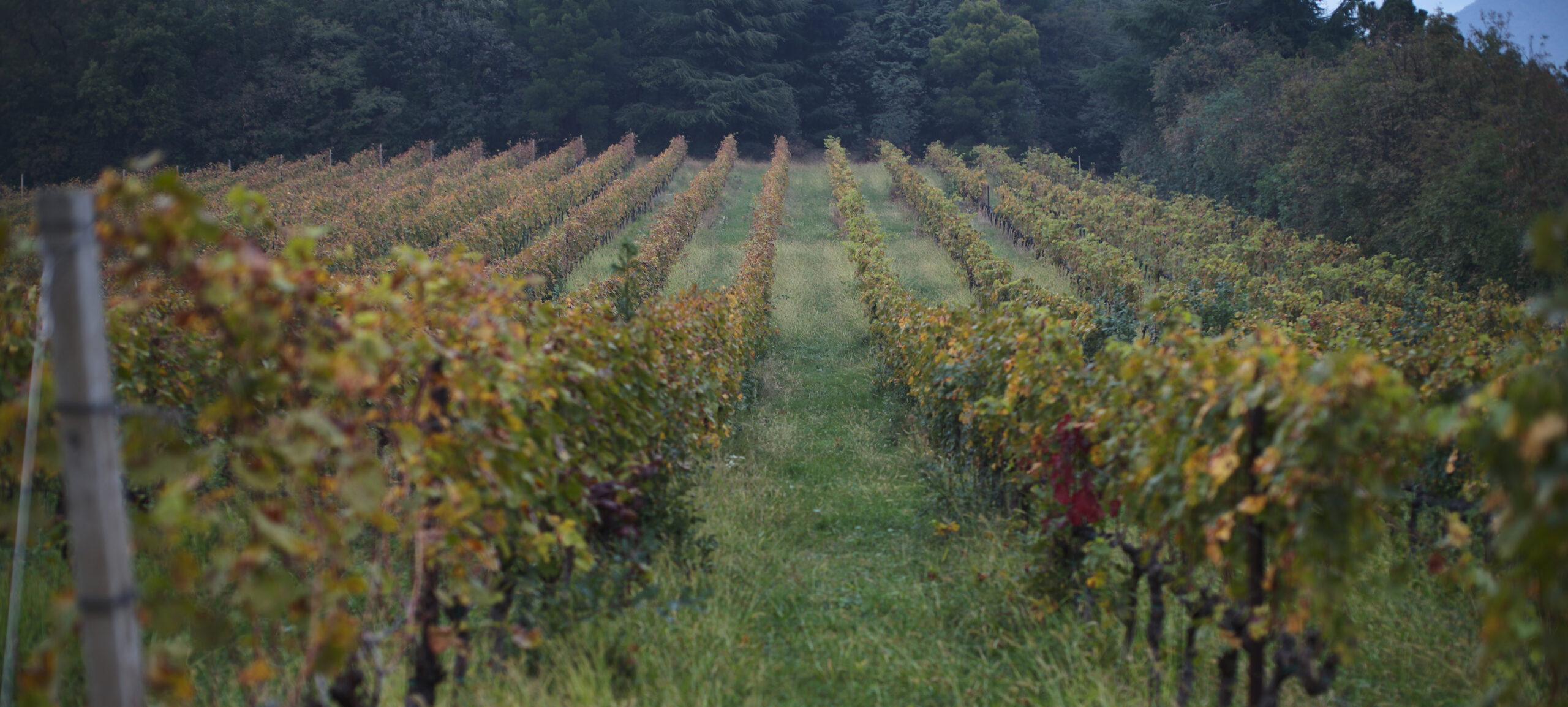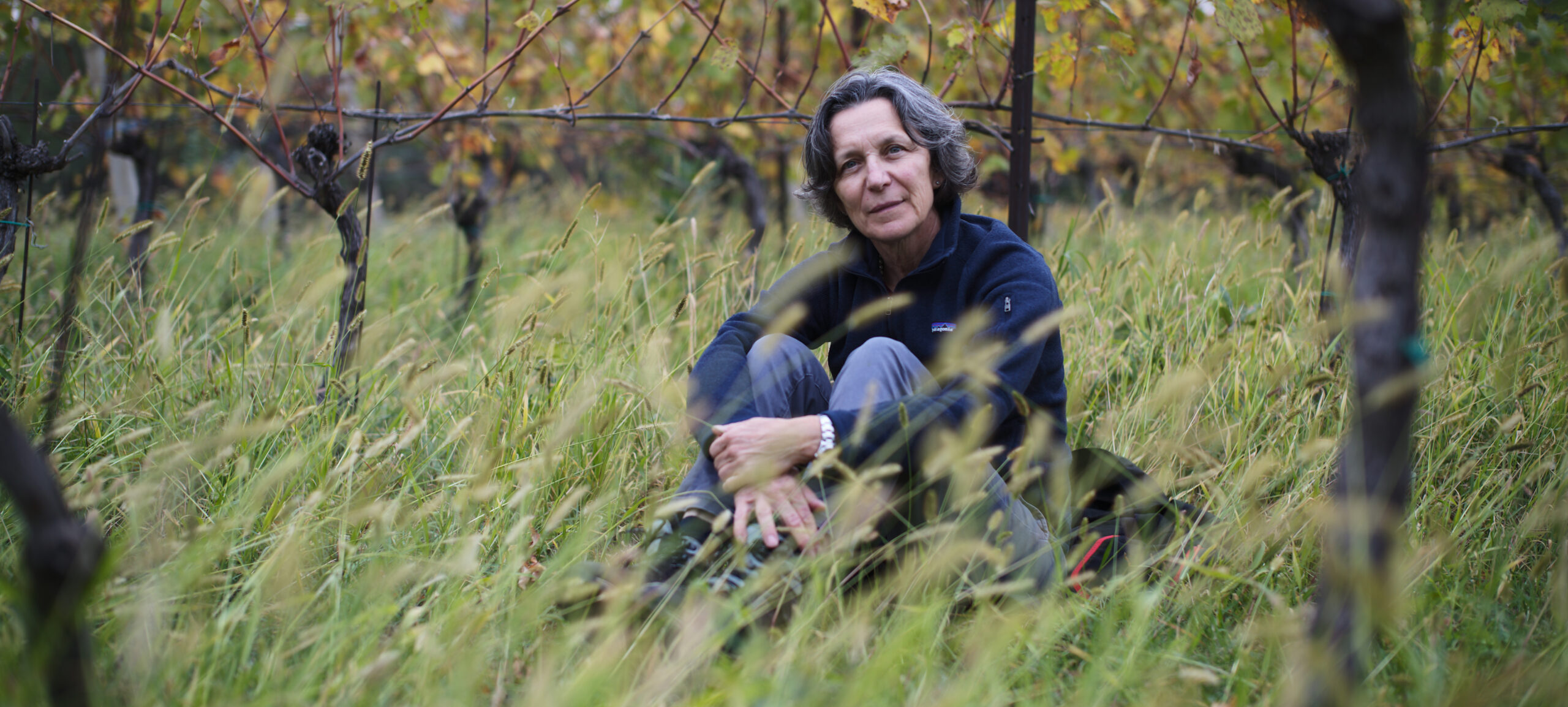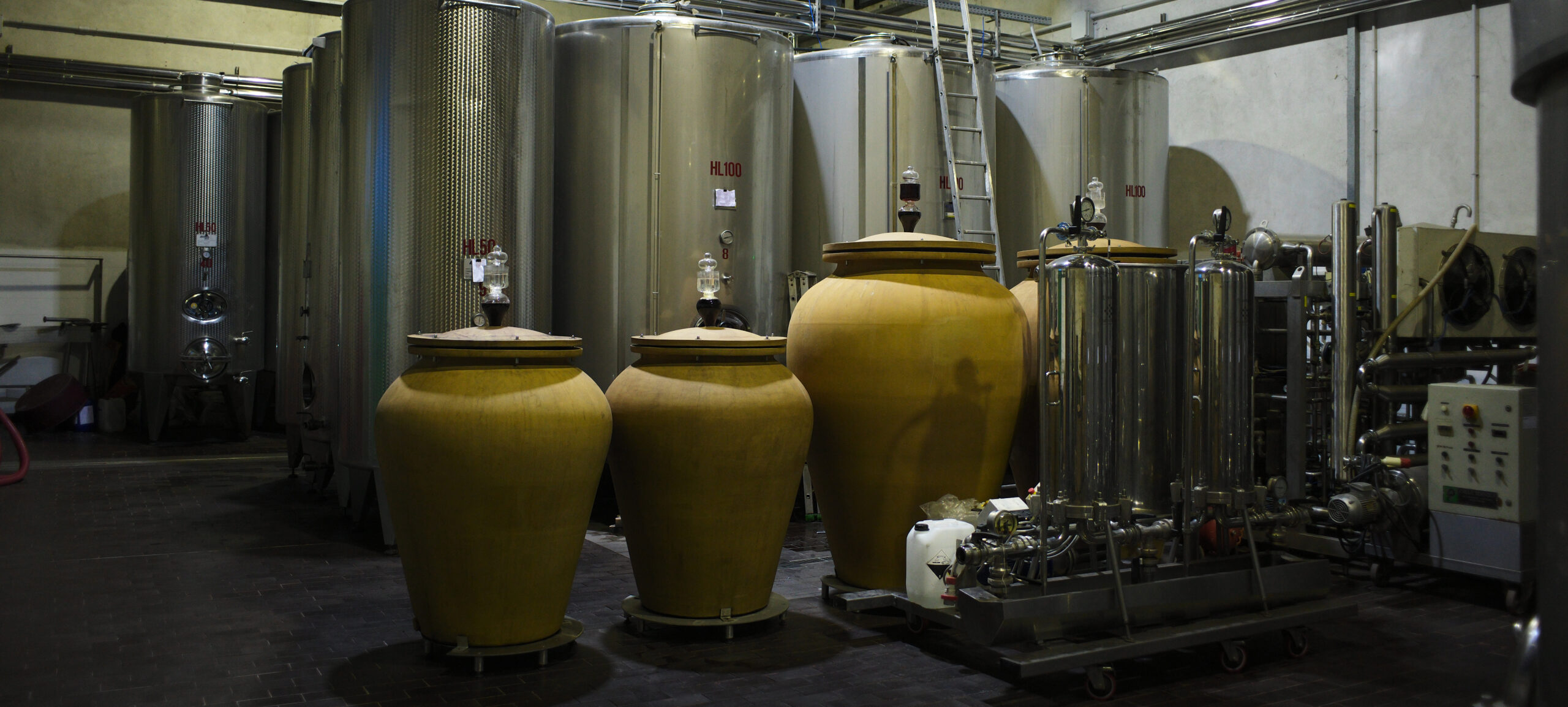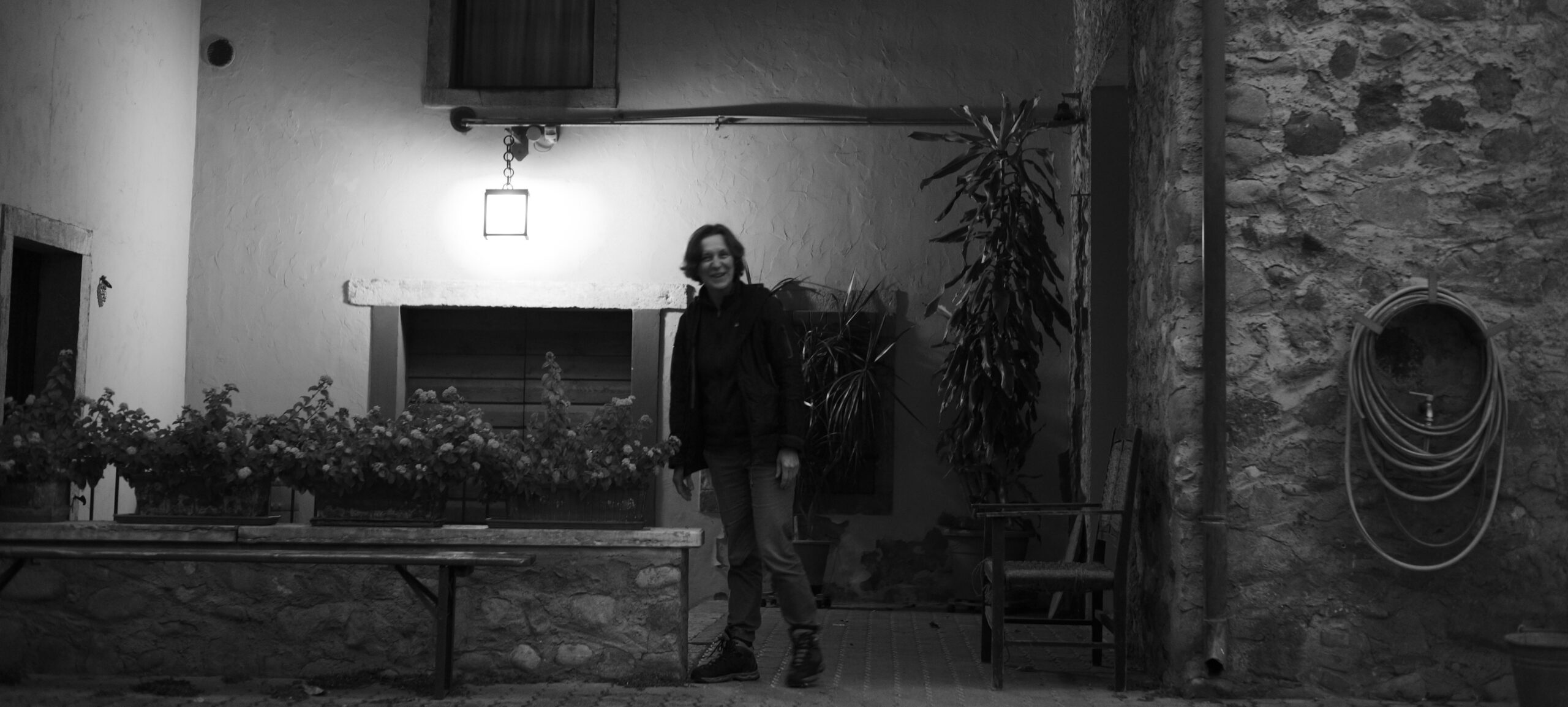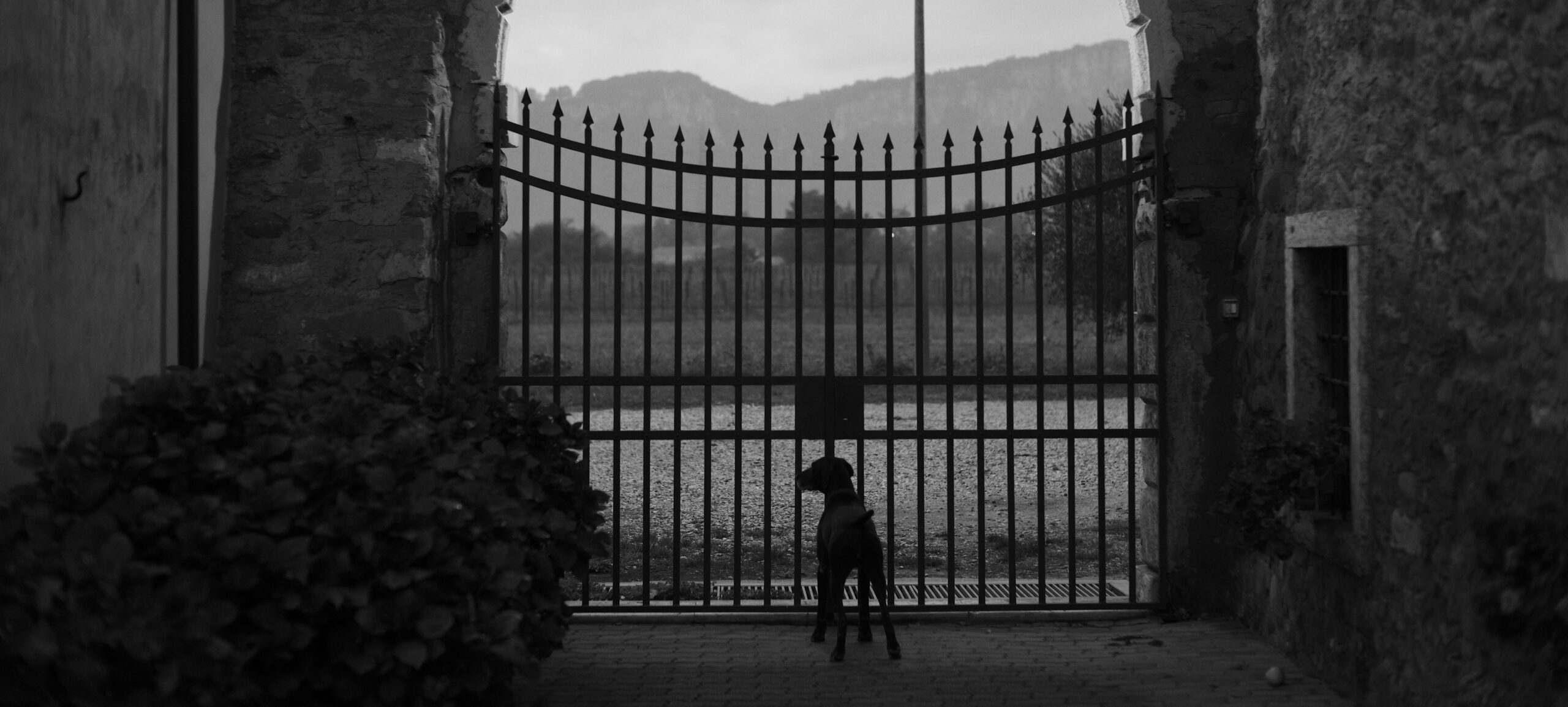Le Fraghe is a charming, artisanal winery located in the heart of the small Bardolino appellation nestled between Lake Garda and Valpolicella. Matilde Poggi founded the winery with her inaugural 1984 vintage. Previously, her father had been selling their grapes to his brother who had his own winery. Poggi, also a dear friend and cohort of our beloved Elisabetta Fagiuoli of Montenidoli in Tuscany, has become one of the most respected independent wine producers in Italy. Coming from the relatively little-known appellation of Bardolino, she grew to prominence and became the president of FIVI, the Italian Federation of Independent Winegrowers, and later, that same federation’s parent entity for Europe, CEVI or European Confederation of Independent Winegrowers. The idea of these organizations is essentially to give a stronger voice, on the level of much larger wine corporations, when it comes to policy and politics within the winemaking world.
Le Fraghe in dialect means fragole or strawberries which are found among her vineyards. The soil at Bardolino is a glacial schist leftover from the glaciers that carved out lake Garda and helps to imbue a nice base of minerality to the wines. Poggi has been working organically since 2009. The heart and soul of her production are the Bardolino Classico and Bardolino Chiaretto (Rosato), both made from Corvina and Rondinella. Although both of these grapes are also grown in nearby Valpolicella, the style here is completely different and built on elegance rather than the powerful rich fruit of its neighbor.
At harvest, everything is picked by hand. Both the main Bardolino and Chiaretto are vinified in stainless steel. The Rosato is part saignée (bled from the Bardolino) and part direct press, and aged in a mix of cement and stainless steel. She also makes an excellent Garganega which has great acidity and displays its own character compared the Garganega grown in Soave on volcanic soil. Matilde also makes a single-parcel Bardolino called Brol Grande. Brol in dialect means Clos (vineyard surrounded by a wall). She also makes two relatively newer wines called Traccia di Bianco and Traccia di Rosa both of which are spontaneously fermented in cement from choice vineyard plots. Traccia means trace or tracks.
The Bardolino appellation makes a style of wine we love with high acidity, crunchy, crispy fruit, and mineral-laden strawberries and blueberries. The red is meant to be a lovely medium-bodied wine that is best served with a little chill, and goes down the hatch very easily with most light, simple foods. Interestingly, the Chiaretto Rosato is perhaps the region’s most well-known wine, and one of Italy’s benchmark rosés. It too is light and refreshing with a texture and verve that marries well with food.
